NOT A FACTORY-MADE PUNK
Interview With the Founders of Feed The Punks Records
El Monte
From Issue 2.1, September/October 2005
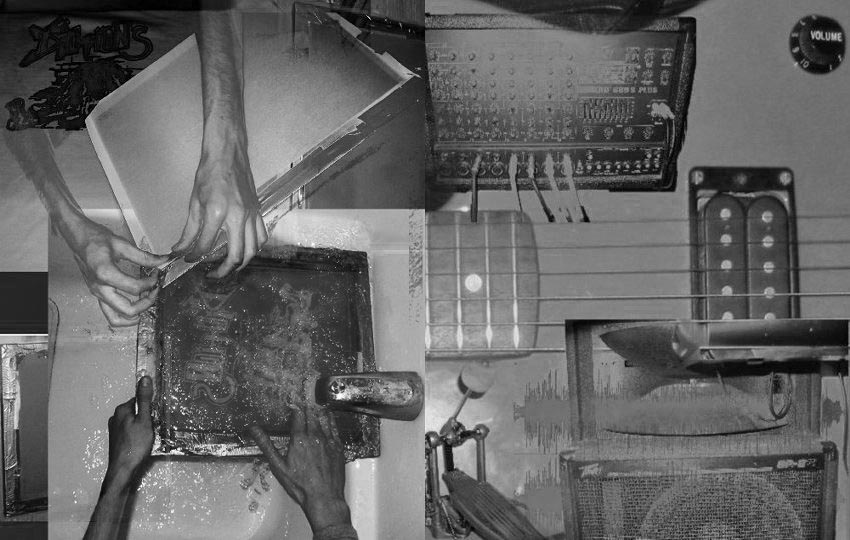
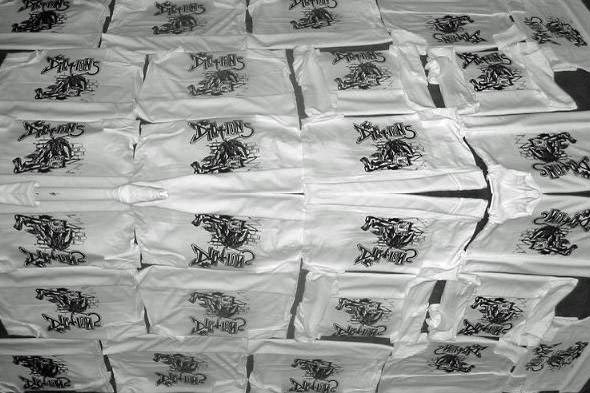
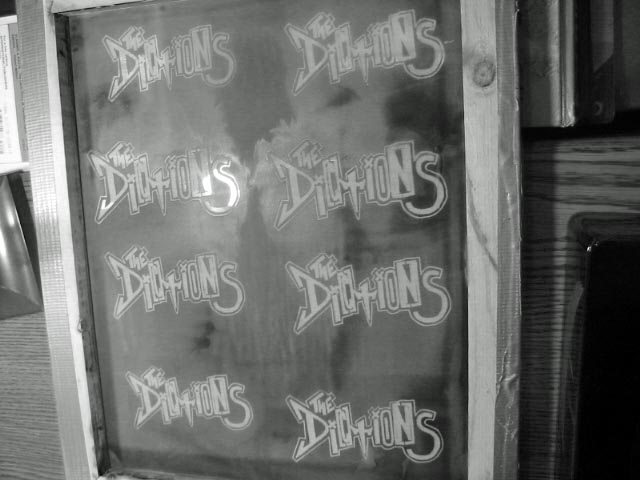
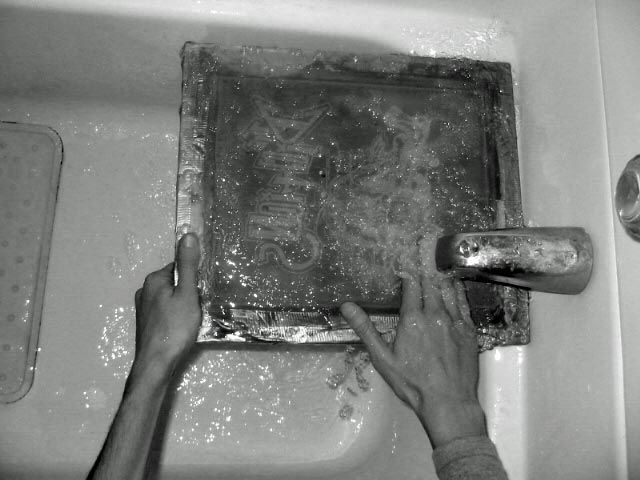
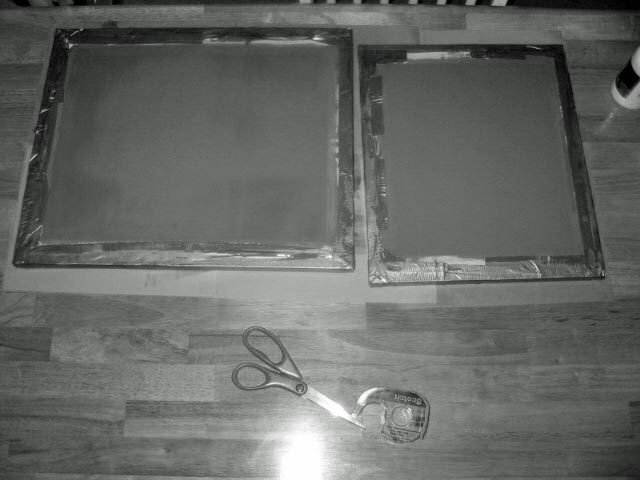
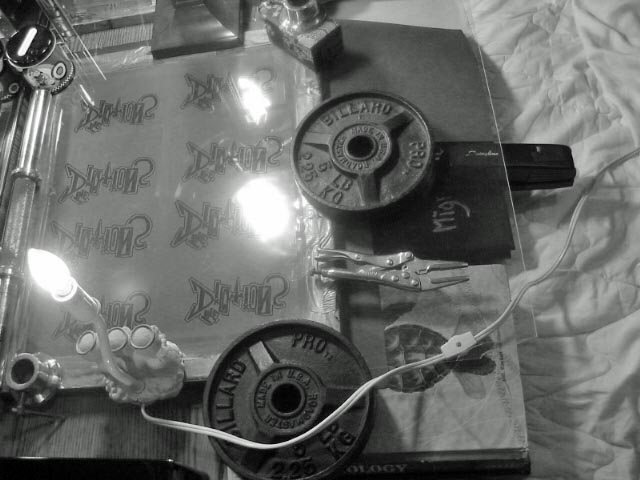
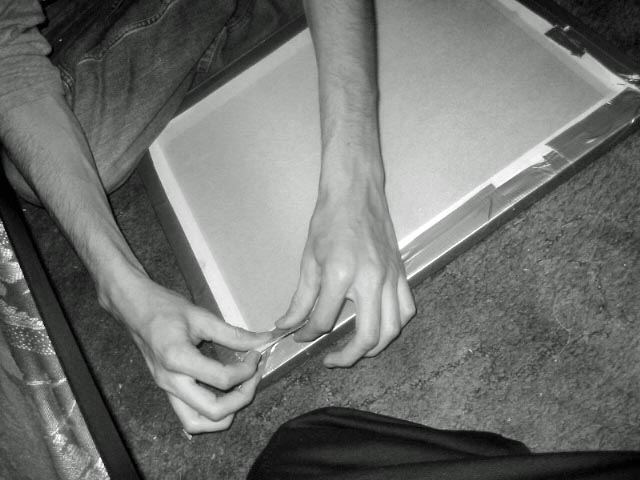
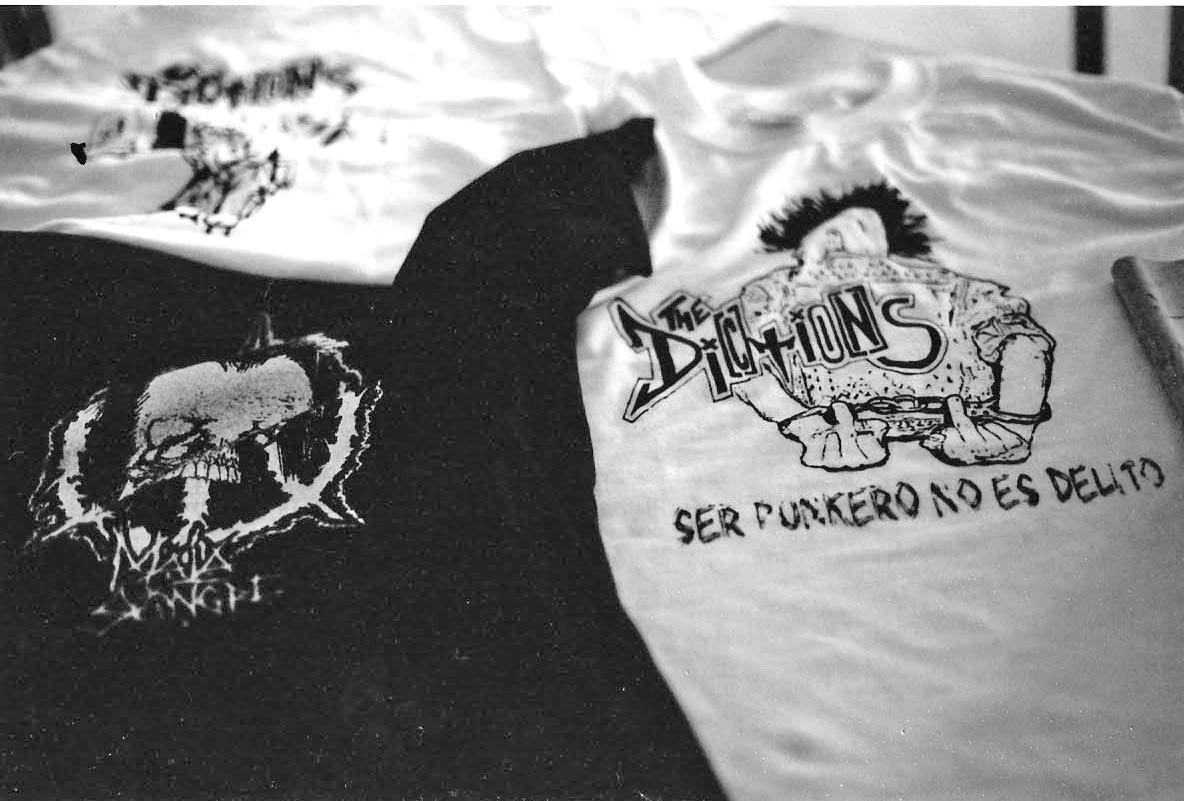
I don’t like the idea that D.I.Y. is shitty just because it’s punk,” said 21-year-old Luis Soltero, one-half of Feed the Punks Records, an El Monte silk screening and recording team that also includes Marco Robles, 21. “If you do make things that are good, people will take more interest. You know when people take the time, that they care-and that attracts you.”
Feed the Punks, and more importantly the do-it-yourself drive pushing the two who head it, specializes on an inherent part of the “scene culture.” It is one of the less talked about aspects of the relationship between local bands, gigs and music listeners. But, let’s face it, without the shirts, the pins or the patches, something would be sorely lacking in music.
The making of a patch or T-shirt is just as much a part of listening to music-however, it’s something that Soltero sees as lacking a bit among bands and their supporters today.
“The options are just not there,” said Soltero. “At gigs in El Monte, you never see bands selling their stuff. You can blame the kids, and say that they’re lazy, but the culture’s just not there.”
And Robles couldn’t agree more, “I think they’re [bands and fans] young,” he said of why there are not many kids picking up on the merchandising aspect of the local music scene.
Although, the word “merchandising” would seem like the antithesis to the D.I.Y. ethic as much so as “consumerism” or “selling out.” However, it’s not merchandising in the business sense of the word. The two see it as a way to support the bands they like.
After all, it seems as if the only options for merchandise, would be for bands to go to commercial presses or silk screeners. There are no affordable in-betweens, and those that exist are obscure.
That’s where a group like Feed The Punks comes into play as a way of simply helping out the music scene the two grew up with. After all, Robles and Soltero do not consider themselves a formal business. They just liked the music of local bands like The Dictions, Mala Sangre, Sin Remedio, Harpoon Guns and Harry Balzagna and the Teenie Weenies and wanted to help out.
Feed the Punks simply stemmed from The Dictions’s (an El Monte band; see page 18) need for T-shirts and patches back in January after Soltero and Robles recorded the band. Feed the Punks became official after the two put up a web site that showcases the products they’ve made for bands such as The Dictions or Mala Sangre and recordings for bands like Hour Earth and Civil Amok.
At first, they did not charge The Dictions. They left it up to individual bands on whether or not they wanted to pay-and some paid them based on what they made from sales. However, the two now charge because of their plans to turn this into a label and “put out records from bands we like” according to Robles. They now have a small budget that allows them to buy materials when an order is placed.
Before the two began experimenting with silk screening, Soltero started out with stencils, but found stencils took too much time to produce things like T-shirts in quantity. Twenty shirts took about 3 hours. As a result, Soltero said he started looking into ways to make the process go by faster and that is when he stumbled upon silk screening and found he could double his productivity. In the same amount of time it took him to make 20 shirts with stenciling, he could make 50 with silk screening.
And thus began the experimentation and learning process. From learning that silk screening is faster than stenciling to finding that a 500 watt bulb is more efficient than a standard bulb (compare waiting all day with waiting three hours for the chemical processing), Feed the Punks is truly a result of creativity driven by Soltero and Robles’s curiosity.
“Every single thing, we fucked up a few times,” said Soltero of the learning process. “It’s just a matter of making mistakes. You learn about what things you need to be more careful with, or be more thorough with.”
It’s goes back to that adage of having to fall off your bike a few times before you finally learn to ride, that has the brains behind Feed the Punks steadily getting their name out and steadily getting better at what they do.
For the intense amount of labor they put into each patch or shirt or recording, it seems the payoff is rather minimal (as far as a profit margin goes) and mostly the money goes into the purchase of supplies, which begs the question of why they do this to begin with.
“It feels like you’re doing something for the scene,” said Robles.
Added Soltero, “We were tired of being just spectators and just going [to shows] to watch.”
And while they could do more to advertise themselves and hit other cities and counties where they know the bands may have more money to dish out for the merchandise, the two prefer to stay local in El Monte.
“The whole things with this, is supporting the thing that you like,” said Soltero. “We’re not just doing it for the sake of doing it. We could do it for a bunch of emo bands and make a bunch of money, but the band has to have the intention to want to do something.”
He then brought up Guss in the band Mala Sangre, who had an image he wanted put on T-shirts, but just didn’t have the time to make the shirts himself what with touring. And that, to Soltero and Robles, is what Feed the Punks is for.
“With Mala Sangre,” said Soltero, “he has the right intentions, it’s just not humanly possible [to do everything]. Bands like that, who have the desire to do things, show us they care.”
Their version of supporting the scene is not just about them churning out a bunch of shirts for people. Nor is it about them trying to cash in on a type of lifestyle.
It goes down to the core values of what a scene or D.I.Y. ethic even means today where figuring something out and executing a project oneself is more satisfying than spending money and buying one’s way to success.
Soltero was just in a Hot Topic store and saw a Ramones jacket for sale that looked handmade (with exposed stitching and patches), but said knowingly that it was made by a machine-making it seem to the uneducated person that all punk is, is badly exposed stitching and frayed ends.
“It’s [punk] an issue of the people who do things themselves. It’s not about what people did in the 70s,” said Soltero.
“A lot of people see the scene as just kids getting drunk. That’s one side of it,” said Soltero. “But like what Marco said about record swaps, they’re just hanging out. Their motivation is different. At record swaps, you’re not even a part of the regular world. It’s about tuning out the bullshit-the things you complain about. It’s not just mindlessly tuning it out. You just don’t participate. I guess that’s what the scene is.”
And without the ingenuity of people like Robles and Soltero, the “scene” would more than likely cease to be everything that it is today.
Or, at the very least, T-shirts and patches would all look like clones coming off the same conveyor belt.
